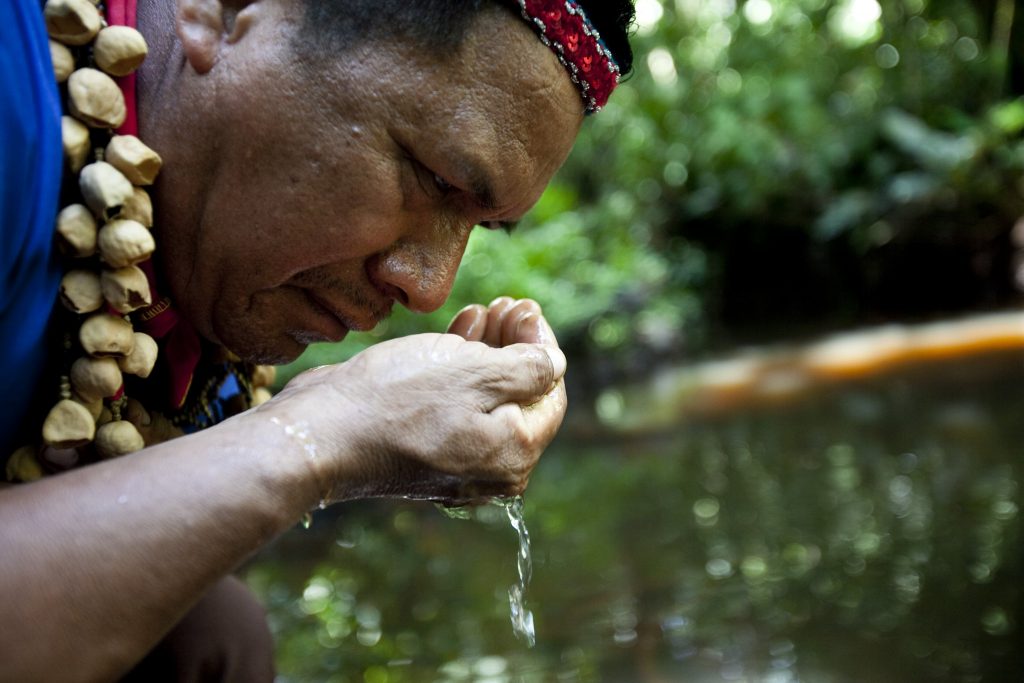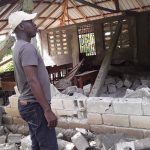“The water and land of this region nourish and sustain the natural world, the life and cultures of hundreds of communities . . . Water, the source of life, has a rich symbolic meaning. In the Amazon region, the water cycle is the great connector. It connects ecosystems, cultures and the development of the territory.”
The Amazon: New Paths for the Church and for an Integral Ecology (Final document of the 2018 Amazon Synod)
A new initiative of the Keough School’s Klau Center for Civil and Human Rights will train government and private sector actors, including local communities, to develop sustainable water resource policies in the Amazon. Training will focus on processes that are consistent with a human rights-based understanding of the right to water.
Through an agreement between the Klau Center, UN-Water, and the Institute for Global Dialogue and the Culture of Encounter (IDGCE), Professor Diane Desierto will engage over 100 participants from South America—indigenous peoples, government regulators, and private sector water providers—who will join the course via Zoom. Case studies on the right to water will form the core of the training program, allowing participants to explore why an integrated and sustainable approach to water rights has been difficult to achieve. The five-week training module will become part of Desierto’s course in economic, social, and cultural rights and will allow Notre Dame law and master of global affairs students to learn alongside the professionals.
Water is not just a good; it’s not just a resource; for indigenous peoples, it’s their way of life.
Unique to this program, training will bridge divides between the various stakeholders – divisions that have impeded progress in finding equitable water management policies. “Water governance, to be consistent with the right to water, has to involve the constituencies who are directly impacted by water, both as the natural resource and as an end good,” Desierto explains. “The problem is that communities, especially indigenous peoples who live near the natural resources, are never part of the governance, the contracts, or the agreements that states and regulators make with private companies, that either use water as part of their extractive activities, or will use it as part of water downstream distribution . . . Water is not just a good; it’s not just a resource; for indigenous peoples, it’s their way of life.”
Without early involvement, affected communities are left to react after contracts are signed, mobilizing grassroots organizations and filing human rights cases when resources have already been exhausted or compromised. “The ultimate goal of the training program will be to envision what a good community development agreement looks like,” says Desierto. Such an agreement will incorporate “not only what indigenous communities need to protect their identity and culture, but also what governments need to ensure continued access and distribution of water and availability at affordable prices, as well as what private operators need to ensure that they’re not operating at a loss.”
Training will begin in early April. Once completed, the module, case studies, and syllabi will be available online via the United Nations for use in ongoing education.
In addition to securing the agreement with UN-Water and IDGCE, the Klau Center supports the program by providing funding for a research assistant, Keough School master of global affairs student Belén Carriedo, who will carry out interdisciplinary research on case studies for the module.
Klau Center director Jennifer Mason McAward emphasizes the collaborative nature of the initiative. “This is an important partnership that brings the best of Notre Dame to those working on the front lines to ensure clean water for all people in South America,” says McAward. “It also enriches the educational experience of our Keough School and Law School students at Notre Dame, who will reflect on the importance of clean water for human rights and dignity.”
Originally published at klau.nd.edu on March 1, 2021.
Photo: Caroline Bennett / Rainforest Action Network, licensed under CC BY-NC 2.0



